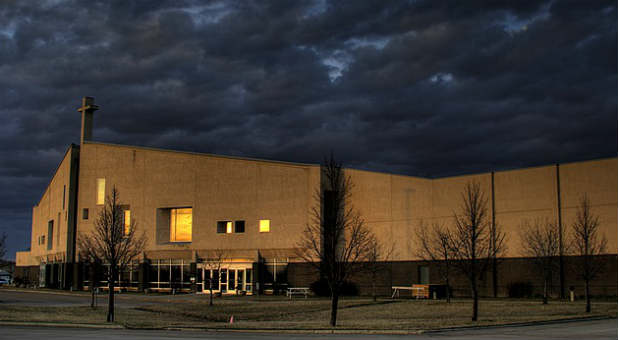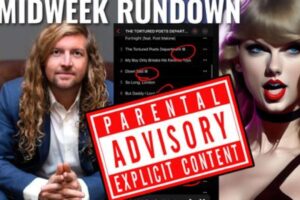Most churches today celebrate secular holidays like Mother’s Day and Father’s Day (nothing wrong with honoring moms and dads) with more fervency and frequency than actual Christian holidays like Good Friday or Pentecost. Similarly, many Christians today will celebrate their faith only twice a year during the two remaining Christian holidays still widely celebrated—Christmas and Easter. My wife grew up as a preacher’s kid. She tells me her dad and his pastor friends had a name for such people. They called them “C&E’s” for people who only showed up in church twice a year at “Christmas and Easter.”
How the Early Church Celebrated Pentecost
But for at least the first 400 years of Christianity, this was not so. The two most important events on the early Christian calendar and the two days considered most worthy of celebration were Easter and Pentecost respectively—the day Jesus arose from the dead and the day the Holy Spirit descended on the church.
In fact, these two major Christian holidays were considered so vitally important to the early Christians, they not only celebrated them annually, but also weekly and regularly. The “Day of the Sun” (Sunday) was also widely known and celebrated by Christians as “the Lord’s Day” believed to be the day of the week Jesus arose from the dead. Even from the earliest days of the church, the apostle John wrote from exile on the Isle of Patmos, “I was in the Spirit on the Lord’s day …” (Rev 1:10)
Similarly, early Christians celebrated Pentecost virtually every time they came together in that the same Holy Spirit and the same supernatural gifts manifested on the day of Pentecost were manifested and celebrated in their midst at every gathering. Again, even in the earliest days of the church, the apostle Paul wrote, “How is it then, brethren? When you come together, every one of you has a psalm, a teaching, a tongue, a revelation, and an interpretation. Let all things be done for edification” (1 Cor. 14:26).
The Early Church Fathers on Spiritual Gifts
Centuries later, the early church fathers validated what Paul had encountered at Corinth: Justin, writing from the early second century, said, “For the prophetical gifts remain with us even to the present time.” Irenaeus, perhaps the most influential of all the early church fathers, also wrote from the second century: “It is impossible to number the gifts which the church throughout the world has received from God in the name of Jesus Christ.” Origen wrote in the third century: “the rain of the divine gifts” that Christ gave to the church makes it glad and reminds us that “the vestiges and traces continue to manifest themselves in the churches.” And from the fourth century, Hilary wrote, “We are inundated with the gifts of the Spirit. That fountain of life, which is the river of God, spills over in us . . . among us there is no one who, from time to time, does not feel the gift of the grace of the Spirit.” And the great church historian, Eusebius, also writing from the fourth century, spoke of the “River of God” that inundates and makes the land “drunk … with the gifts of the Holy Spirit.”
Baptism and Initiation in the Early Churches
The early churches also baptized and initiated new believers into the church at Easter and Pentecost (Christmas was not celebrated until the fourth century). Baptism typically included a water bath, followed by an anointing and laying on of hands before believers finally received the Lord’s Supper. Tertullian, known as the “the Father of Latin Christianity,” described the laying-on-of-hands portion of baptism as an “inviting or welcoming of the Holy Spirit. Justin also described the initiation experience as “baptism in the Holy Spirit.”
Following our Lord’s example of being baptized first by water and then by the Spirit, the early churches baptized candidates with the sacred bath of the new birth, immediately followed by baptism in the Holy Spirit for the distribution of spiritual gifts. Spirit baptism was considered subsequent to the washing of regeneration. Hilary wrote, “After the water bath, the Holy Spirit rushes upon us from the gate of heaven, that we might bathe in the anointing of the heavenly glory.” Tertullian wrote, “I do not say that the Holy Spirit is given to us in the water, but that in the water we are made clean and made ready for the Spirit.” Gregory of Nazianzus, who represented early Eastern Orthodox views, said, “the Creator-Spirit, Who by Baptism and by Resurrection creates anew; the Spirit That knows all things … That perfects so as even to anticipate Baptism, yet after Baptism [is] to be sought as a separate gift.”
More Reasons to Celebrate
So, Christian Pentecost was not only a Christian holy day to commemorate the Holy Spirit’s initial descent on the first 120 followers of Jesus, it also marked the birth or official beginning of the Christian church. Though it is not known exactly when Pentecost began to be observed by Christians, it is believed to have begun early in the first century.
For the Jews, Pentecost was part of their festival season (Feast of Tabernacles, Passover, and Pentecost) when multitudes of devout Jews and proselytes from every nation made their annual pilgrimage to Jerusalem. According to Roman-Jewish historian Josephus, when the Romans besieged Jerusalem during the Feast of Passover in AD 70, no fewer than three million people were living in the city. Josephus also mentioned a great multitude of Jews from other nations who were present in Jerusalem for the Feast of Pentecost, which would explain the multitude who heard the 120 speaking in their own languages on the day of Pentecost. Pentecost is still celebrated by Orthodox Jews today as Shavuot. But beyond all of this, there are still many more reasons for Christians to celebrate Pentecost today.
The Biblical Significance of Pentecost
Jesus celebrated the Jewish Feast of Passover with his disciples shortly before his death. The feast was to commemorate God helping the children of Israel escape from the bondage of slavery in Egypt. Ten plagues came upon the Egyptians. The tenth and worst of all was the slaughter of the firstborn. The Israelites were instructed to mark the doorposts of their homes with the blood of a sacrificial lamb and, on seeing this, the destroyer would pass over their homes. The last plague led Pharaoh to release the Israelites from bondage. Thus, the Passover Feast is a celebration of deliverance from both death and bondage. After Jesus celebrated the Passover with his disciples, he became the sacrificial Passover Lamb freeing the world from both bondage and death.
Exactly 50 days after Passover is the Jewish Feast of Weeks, which begins on Pentecost. The word Pentecost simply means “50th” day. This festival commemorates the descent of Moses from Mount Sinai when God gave his law (the Old Covenant) to the children of Israel. This event occurred 50 days after Israel’s exodus from Egypt. The Feast of Weeks was also a celebration of the grain harvest and offering of first fruits to God. It was a season of great jubilation and celebration. Likewise, exactly 50 days after Christ delivered God’s people from both bondage and death on the cross, you guessed it, the Holy Spirit descended from heaven and ushered in a New Covenant and a new season of harvest and joy began—the church age.
Celebrate Pentecost with Expectation!
In 2017, Pentecost Sunday will fall on June 4. It nearly always falls on the seventh week or fiftieth day after Easter, including Easter Sunday, which this year was April 16. Perhaps it is time we evangelical, Pentecostal and charismatic believers recover this most important and significant Christian holiday in the life of the early church—not only on Pentecost Sunday, but also every time we gather. Invite and expect the power and presence of God and the supernatural gifts of the Holy Spirit to be manifested in your meetings and celebrate the Holy Spirit’s descent—including His accompanying signs, wonders and miracles.
The 120 did not know what to expect on the day of Pentecost. Jesus did not tell them what would happen—only that they would receive power. Forty days after the Passover, Christ ascended to the Father. Pentecost came just 10 days after Christ ascended. After his ascension, the 120 gathered in the upper room of a house for daily prayer and supplication. They knew the 10th day had special significance because it was Pentecost. It was undoubtedly met with great expectation. Every mind, affection, and desire was set on one thing—receiving the promise of the Father.
“When the Day of Pentecost had come, they were all together in one place. Suddenly a sound like a mighty rushing wind came from heaven …” (Acts 2:1-2a).” Just as Christ had ascended, the Holy Spirit now descended. When Moses descended from Mount Sinai with God’s law, he was also accompanied by thunder, lightning, loud trumpet sounds and a thick cloud of fire and smoke. (Ex 20:18) And when Solomon brought back the Ark of the Covenant to the temple, 120 priests and singers made one sound to the Lord, and the whole house was filled with a thick cloud so that the priests could not stand to minister (2 Chron. 5:13-14).
Was there ever any doubt this initial outpouring of the Holy Spirit would come in any less grand or dramatic fashion? Yet this mighty effusion was only a sampling of the powerful effects the Holy Spirit would have on the church throughout its long and illustrious history. These same effects are available today for all who look and listen for them. {eoa}
Jeff Oliver is an inspirational speaker and author of Pentecost to the Present: The Holy Spirit’s Enduring Work in the Church. This three-volume series traces our Spirit-filled heritage to ancient times and gives documented historic evidence of signs, wonders and miracles continuing in the church to this present age. Jeff is also founder and president of Global Wakening—a ministry that is inspiring and equipping a new generation with a supernatural Christian worldview to ignite a global wakening of God’s church.
See an error in this article?
To contact us or to submit an article






















